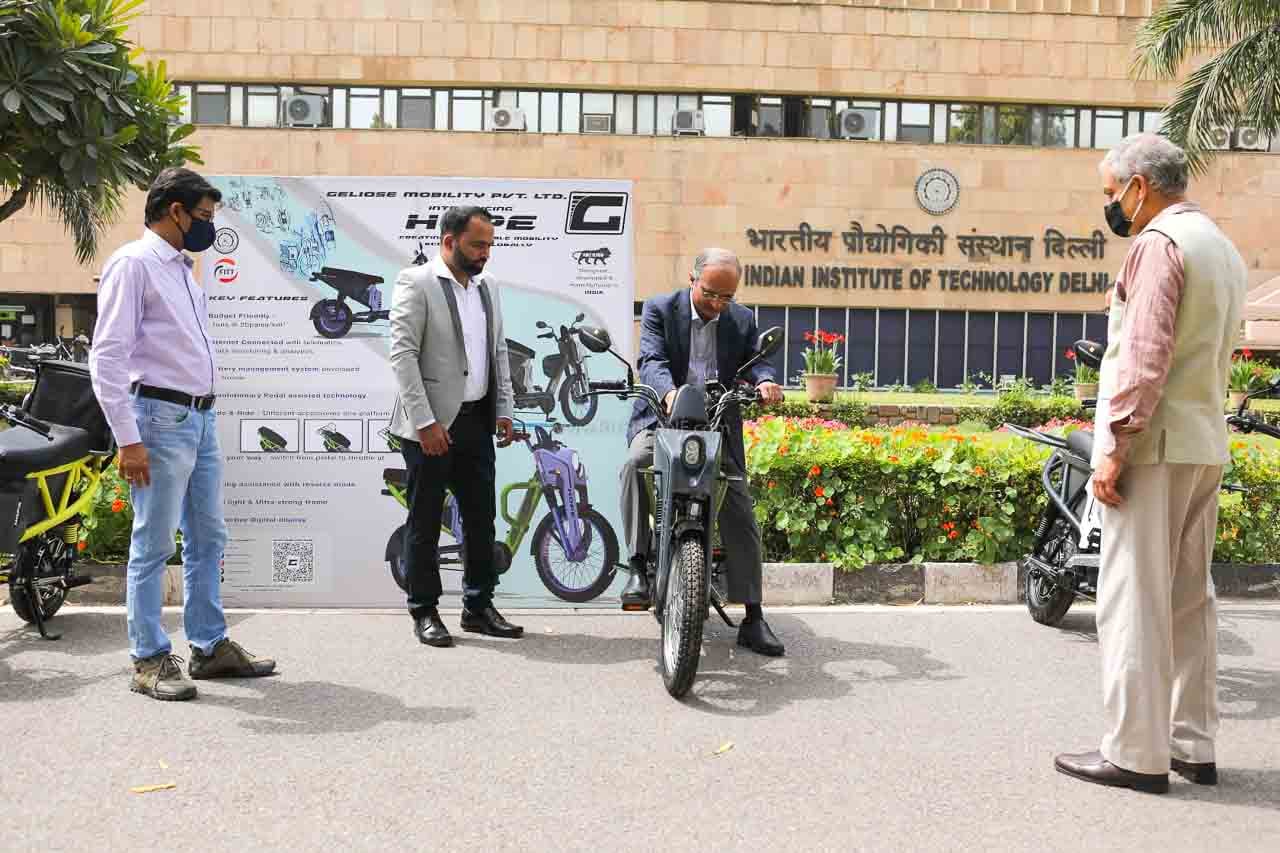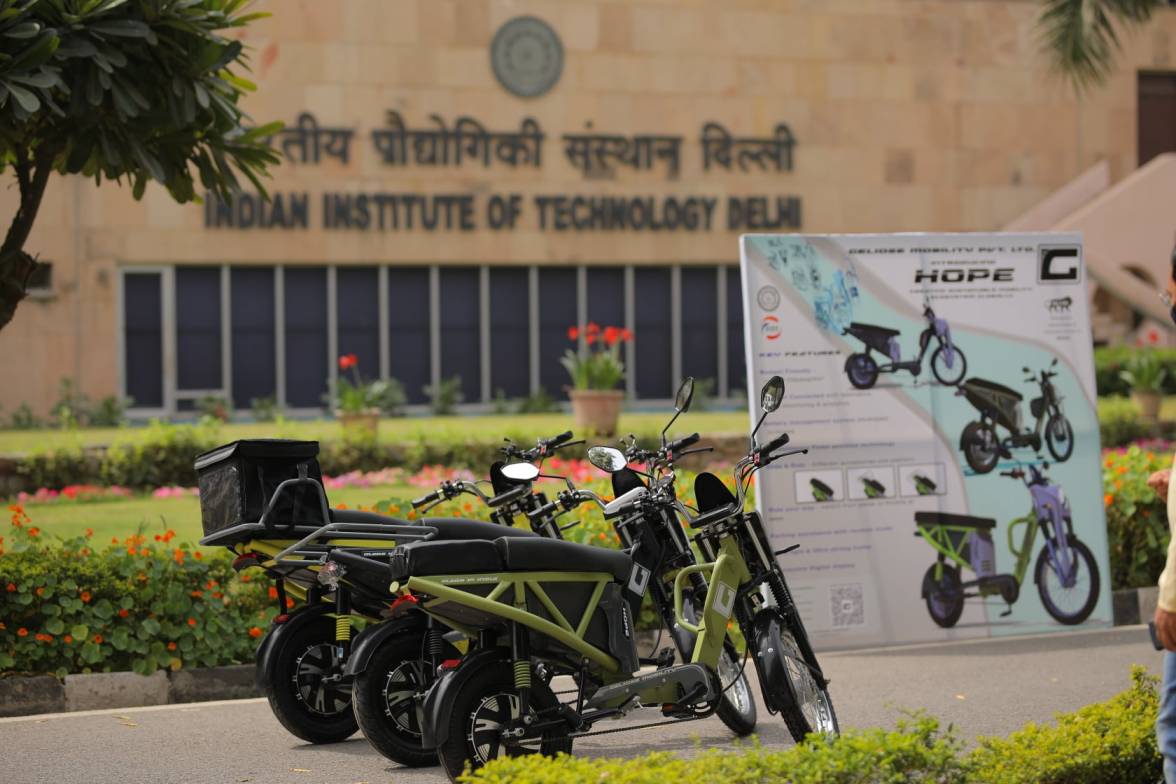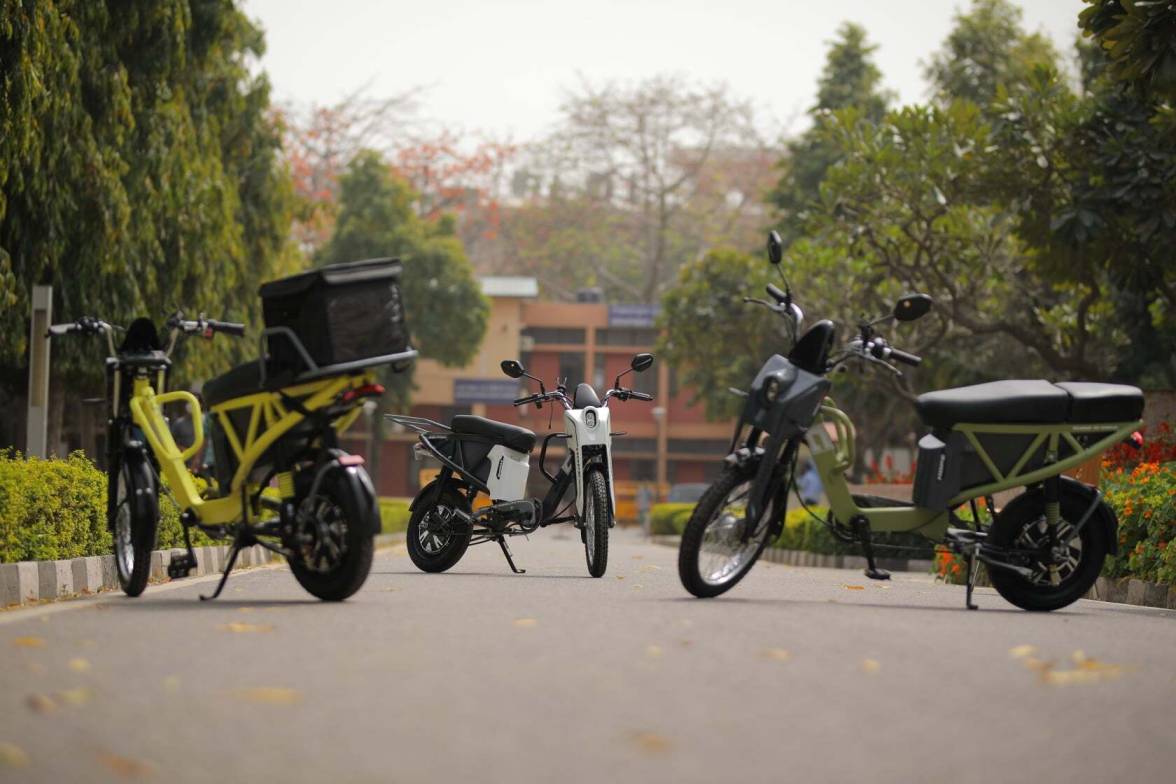IIT-Incubated EV Startup Launches Scooter that Goes 75Km on 1 Charge at 20 Paise/Km
IIT Delhi incubated EV startup, Geliose Mobility, started by Aditya Tiwari has recently launched 'Hope'. This affordable EV scooter can go up to 75 kms on a single charge.

“We wanted to build something that could be affordable to the masses, middle class families, students, and even delivery agents. This could be used for income sources [delivery agents] or for personal commute [last mile connectivity],” Aditya Tiwari, founder of Geliose Mobility, an Indian Institute of Technology (IIT) Delhi incubated EV startup, tells The Better India.
The startup has launched an electric scooter called ‘HOPE’ on 18 March 2021. With the Indian market now flooded with various EVs, Aditya speaks about some of the features that makes Hope stand out.
“The initial motivation, when I started the company in 2017, was to create a positive impact on the rising air pollution and climate change issues that we have been grappling with,” he says. Hope was Aditya’s way of creating a sustainable mobility vehicle, which in turn could reduce the vehicular pollution levels.
With a starting price of Rs 46,999, he adds, “EVs with similar features are currently available in the market at a higher cost.”
The running cost of this scooter is only 20 paise per kilometre, which makes it affordable. This scooter also comes equipped with technology like a battery management system, a data monitoring system and a pedal-assist unit.
‘Merging affordability with innovation’

The design element of Hope has also gone through several rounds of iterations. Aditya says, “We looked into the future and have designed a scooter keeping those aspects in mind. This EV scooter can be connected to the internet and the data can be easily accessed via an application.
Even the battery management system, Aditya says, has been developed in-house. “We take great pride in the battery management system that we have developed. It is one of the features that makes Hope unique. It gives the user an accurate estimation of what percentage battery is left, and also shows you the health of the battery.” He also adds that a lot of data is collated from the battery to be able to constantly improve on the existing system.
Since all the data is available to the user as well, one can easily log into the app to check on the battery’s charge, speed, voltage, GPS location and also the trips that the vehicle has done. Speaking about the target audience for this vehicle, Aditya says, “We are looking to collaborate with logistics and delivery companies to meet their local delivery requirements.”
Pedal Assisted Technology

“We have a design thinking approach,” says Aditya. Before product development, there were several surveys that they undertook to get a sense of what the end user was looking for. These ideas were then collated and brainstorming sessions were undertaken to design and develop the product. Before the launch of the final product, there were as many as 10 prototypes that were designed and developed.
Aditya describes the EV as a cross between a moped and an electric scooter. “For the fitness enthusiasts who might want to pedal, or even those who have range anxiety [fear that a vehicle has insufficient range to reach its destination and would thus strand the vehicle’s occupants], this feature, which allows the user to pedal, comes in handy,” he says. This feature adds immense boost to the vehicle.
Yet another salient feature is the ability to charge your mobile on the go. “Many of those who use our EVs, use the GPS system on their phones to find the location and often run out of charge on their phones. This feature is sure to bring respite to them,” says Aditya. The battery is also very effortlessly detachable and portable, which makes charging it in your home or work space rather easy. This battery need not be charged in your parking lot and can be charged in any socket within your home or office.
“A portable charger will be provided, which one can plug into any regular socket and charge the batteries,” says Aditya. With 3 hours and 10 minutes of charge time, the batteries get charged up to 80 per cent, and in 4 hours the battery is fully charged. The vehicle is capable of running for up to 75 kms on a single charge. Since this vehicle falls under the exemption category, it does not require the user to have a driver’s license or for the vehicle to have a registration. This vehicle can go up to a speed of 25 km/hr.
A push for Make in India

A mechanical engineer, who graduated from NIT Surat in 2016, Aditya shares that while his original plan was to go abroad to pursue a Masters degree, he realised that to achieve his goal of product development for the end user, he would need to stay back in India. Thus, Geliose Mobility came into being. “With that in mind, I put together a core team of seven members and started the company in 2017,” he says.
Aditya shares that one of the main intents of the company is to procure all the parts for the vehicle from India. In some cases, even if there was a dearth of suppliers, Aditya speaks about how the company has trained suppliers. “Whether it is the small or the larger components, we identified suppliers, gave them the design and the technical know-how and started getting it made in India,” he says. Building a network of a strong supply chain in India was very important to the company.
With a three-year warranty on the battery and a one-year warranty on the electronics such as the motor, convertor and controller, the company will also provide four after-sales services to the customer, free of charge. With respect to those who are buying the vehicle in bulk, 50 or more units, for fleet services, free periodic maintenance services are also being provided.
Geliose Mobility raised its initial funding from IIT Delhi and it was with that seed funding that the company was built. Aditya says, “We are now going through the process of raising funds and are looking to deploy the funds to increase our production capacity. We are also looking to spend time and energy on research and development of certain other products that we have in the pipeline.”
Hope is now available in the Delhi/NCR region for purchase in two configurations — having two battery slots and a range of 50 kilometres and 75 kilometres when fully charged. In the next six months, Geliose Mobility is looking to expand into various cities and Aditya says that many orders have come in from South India, Bihar and Uttar Pradesh as well.
(Edited by Yoshita Rao)
If you found our stories insightful, informative, or even just enjoyable, we invite you to consider making a voluntary payment to support the work we do at The Better India. Your contribution helps us continue producing quality content that educates, inspires, and drives positive change.
Choose one of the payment options below for your contribution-
By paying for the stories you value, you directly contribute to sustaining our efforts focused on making a difference in the world. Together, let’s ensure that impactful stories continue to be told and shared, enriching lives and communities alike.
Thank you for your support. Here are some frequently asked questions you might find helpful to know why you are contributing?


This story made me
-
97
-
121
-
89
-
167













